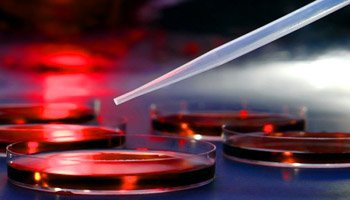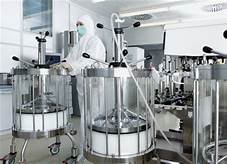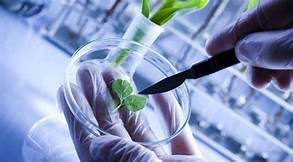BIOTECHNOLOGY IN A BIO-DIVERSIFIED WORLD
My love for biotechnology started a while ago, I think it was after I got admission to study Agricultural and Bioresources Engineering, of a truth I didn't learn much of it in school but I had this serious enthusiasm for it.
Biotechnology is said to be the use of biological processes, system, or organisms to manufacture products with the intend to improve the quality of human life. Majority of the earliest biotechnologists were farmers who were able to develop improved species of plants and animals by cross pollenization or cross breeding.

[Source: https://www.pinterest.com/pin/424745808581033385/]
Biotechnology as a science can be broken down into subdisciplines called red, white, green, and blue.
Red biotechnology involves medical processes such as getting organisms to produce new drugs, or using stem cells to regenerate damaged human tissues and perhaps re-grow entire organs.

[Source: https://www.wonderwhizkids.com/index.php/bio-technology]
White (also called gray) biotechnology is said to involve industrial processes such as the production of new chemicals or the development of new fuels for vehicles. A good example is the designing of an organism to produce a useful chemical. Another example is the using of enzymes as industrial catalysts to either produce valuable chemicals or destroy hazardous/polluting chemicals. White biotechnology tends to consume less in resources than traditional processes used to produce industrial goods.

Green biotechnology applies to agriculture and involves such processes as the development of pest-resistant grains or the accelerated evolution of disease-resistant animals. Genetically modified crops ("GM crops", or "biotech crops") are plants used in agriculture, the DNA of which has been modified with genetic engineering techniques. In most cases, the main aim is to introduce a new trait that does not occur naturally in the species.

Blue biotechnology, rarely mentioned, encompasses processes in marine and aquatic environments, such as controlling the proliferation of noxious water-borne organisms.

[Source: https://qph.ec.quoracdn.net/main-qimg-c904650e4b0f249247d28c69570ae141.webp]
Like other advanced technologies, biotechnology has the potential for misuse. Concerns about this has led to efforts by some groups to enact legislation restricting or banning certain processes or programs, such as human cloning and embryonic stem-cell research.
There is yet the concern that if biotechnological processes are used by groups with nefarious intent, the end result could be biological warfare.
Biotechnology is one field that is yet to be totally developed, we'll agree that alot have been achieved already, but as the years go by more biotechnological advancement will emerge.
